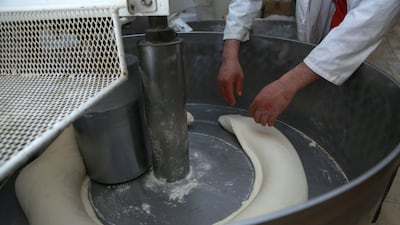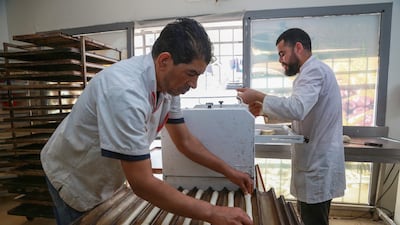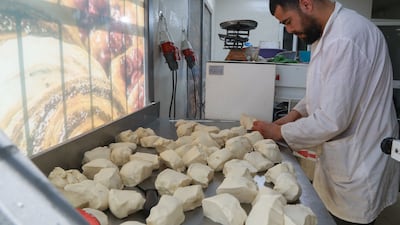UN Secretary General Antonio Guterres on Wednesday said the global food and energy price crisis was “systemic, severe and speeding up” as Russia’s invasion of Ukraine causes “economic chaos” and hardship for about 1.6 billion people.
The UN chief said the war in Europe had tightened global finances and caused food and energy price spikes in 94 countries, affecting hundreds of millions of people.
Mr Guterres spoke as new data was released from the UN Global Crisis Response Group on Food, Energy and Finance, and as he works towards a deal to unlock grain and fertiliser exports from Russia and Ukraine, which have been snarled up by blockades, fighting and sanctions.
“Today’s report makes clear that the war’s impact on food security, energy and finance is systemic, severe and speeding up,” Mr Guterres told reporters in New York.











“Around the world, the war is threatening to unleash an unprecedented wave of hunger and destitution, leaving social and economic chaos in its wake.”
The UN’s global index on food prices had already reached record highs in February even before Russia invaded Ukraine on February 24. Since then, the index rose further and reached a new high in March.
By the end of the year, the number of people struggling to eat enough calories is set to grow by 47 million to 323 million.
Meanwhile, rising prices for fertilisers have put them out of reach for many farmers, threatening the production of wheat and vegetable oils in the next planting season that could affect billions across Asia and the Americas, the report said.
All economies have been hit by the crises, but major importers across the Middle East and Africa are seen as particularly vulnerable.
About 58 million Africans are set to fall into poverty this year and 2.8 million people in the Middle East will experience extreme poverty, with the Levant and the Maghreb hit the hardest.
Mr Guterres repeated demands for Russia to end its military assault, but with peace talks between the two sides showing little sign of progress, he discussed a “package deal” that aims to circumvent both sanctions and Moscow's blockade on Ukrainian ports.
Top UN officials Rebeca Grynspan and Martin Griffiths are working on a compromise that would allow “for the safe and secure export of Ukrainian-produced food through the Black Sea and unimpeded access to global markets for Russian food and fertilisers”, he said.
Since Russia's invasion of Ukraine, Ukrainian grain shipments from its Black Sea ports have stalled and more than 20 million tonnes of grain are stuck in silos. Mostly western sanctions against Moscow over the invasion have slashed exports of Russian fertiliser and energy.
“Ukraine’s food production and the food and fertiliser produced by Russia must be brought back into world markets — despite the war,” said Portugal's former prime minister.
Earlier on Wednesday, Russian Foreign Minister Sergey Lavrov rejected claims that his country's invasion of Ukraine was behind the global food crisis, saying that Russia “guarantees” the safety of vessels leaving Ukrainian ports.
“We are not presenting any obstacles to the wheat exports,” Mr Lavrov said in a joint press conference with his Turkish counterpart Mevlut Cavusoglu in Ankara, where he discussed UN plans to re-open Ukrainian grain exports.


